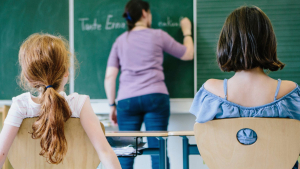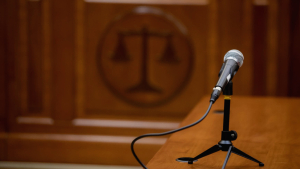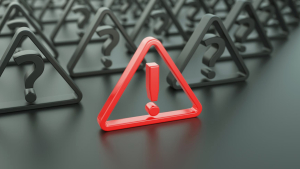You learn less from your own mistakes than from your own successes. Only when it comes to victories and defeats of other people can you benefit from both. The psychologists Lauren Escreis Winkler from Northwestern University and Ayelet Fishbach from the University of Chicago describe this phenomenon in the "Perspectives on Psychological Science".
In 2019, they had already shown in a series of studies with more than 1,600 subjects that negative feedback hinders learning – even if a reward is tempting. The subjects should always choose between two alternative answers to a question. By chance, they were then either informed that they were right- or that they were wrong. In both cases, you knew which answer was correct. Then followed another test with the same content, but formulated in reverse. For example, the question was "Which of these two ancient characters shows an animal?" on the second test "Which of these two old characters does not show an animal?«
Result: After a success feedback, the test subjects knew the correct answer in the second round of the same question on average 80 percent. After a failure report, they only came to around 60 percent - they had learned less from it. A similar effect was shown in questions about pictures of people ("Are these two people a couple?") As well as for professionally relevant questions.
In addition, the participants remembered the two answer alternatives less after their failures (59 percent) than if they received no feedback at all (94 percent). But if they did not answer the questions themselves in the first round, but received correct and incorrect answers from other people, they drew as much information from their mistakes as from their successes. As soon as it was not about one's own person, a mistake was apparently no longer an obstacle to learning.
A mistake threatens the ego
Now the psychologists analyzed the causes. Her conclusion: learning from your own mistakes is exhausting. On the one hand, failure threatens the ego, and in order to protect it, attention is diverted away from it. On the other hand, people prefer to process information that coincides with their beliefs and expectations and ignore those that contradict them – a common error of judgment known as "confirmation bias". In addition, the information that is in the failure is not always obvious. You have to think around the corner and conclude from the wrong to the right.
But with that you stand in your way. Those who are able to learn from failures increase their chance of future successes, write Escreis Winkler and Fishbach. They recommend leaving the ego on the outside: by learning from the mistakes of others, going into a constructive soliloquy or strengthening your own self -esteem in the long term in such a way that the ego can handle calmly.
Another strategy would be a different culture of failure: to realize that failure is human and every failure is another opportunity to learn something – and to fail better and better. According to the psychologists, this is a skill that can be learned and practiced as well as other things.



















